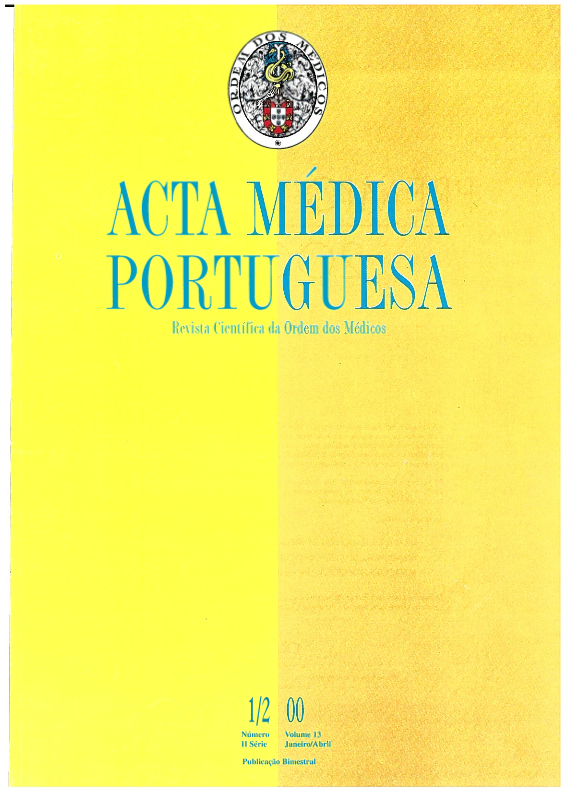Mandatory notification of communicable diseases: what physicians think.
DOI:
https://doi.org/10.20344/amp.1764Abstract
To find out the opinion of family doctors concerning the statutory notification of communicable diseases (SNCD) and to analyse factors associated to a good attitude towards SNCD.Guimarães Health Centre, Guimarães.Analytical cross-sectional study. Questionnaire survey. The 52 family doctors of the Health Centre were asked to express their opinion on some issues, including the utility of SNCD, reasons for the under-reporting of communicable diseases, up-to-dateness of the list of notifiable conditions, facility of filling in the notification form, and their own attitude towards notification. The variables utility of SNCD and attitude towards notification were then considered together with other variables (including postgraduate time, length of the family doctor's lists of patients, working in exclusivity, and how the degree of general practitioner is obtained).The SNCD was considered at least somewhat useful by 96% of the doctors. Thirty percent of the doctors considered excess work and/or lack of time as the main reason for under-reporting, and 29% it attributed to lack of sufficient motivation. The list of notifiable conditions was considered out dated by 46% of the doctors. Thirty eight percent of them considered the multiple notification of a case of disease not inconvenient and 54% stated that they had used it to notify all or almost all of cases they knew. The doctors who worked exclusively as civil servants and who had smaller lists of patients seemed to have a greater compliance regarding notification (p < 0.05).The majority of doctors considered the notification useful. They attributed the under-reporting to some conditions that are difficult to change. In this population, the doctors who worked exclusively as civil servants and who had smaller lists of patients showed a more favourable attitude towards reporting notifiable conditions.Downloads
Downloads
How to Cite
Issue
Section
License
All the articles published in the AMP are open access and comply with the requirements of funding agencies or academic institutions. The AMP is governed by the terms of the Creative Commons ‘Attribution – Non-Commercial Use - (CC-BY-NC)’ license, regarding the use by third parties.
It is the author’s responsibility to obtain approval for the reproduction of figures, tables, etc. from other publications.
Upon acceptance of an article for publication, the authors will be asked to complete the ICMJE “Copyright Liability and Copyright Sharing Statement “(http://www.actamedicaportuguesa.com/info/AMP-NormasPublicacao.pdf) and the “Declaration of Potential Conflicts of Interest” (http:// www.icmje.org/conflicts-of-interest). An e-mail will be sent to the corresponding author to acknowledge receipt of the manuscript.
After publication, the authors are authorised to make their articles available in repositories of their institutions of origin, as long as they always mention where they were published and according to the Creative Commons license.









